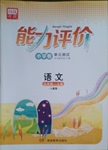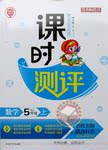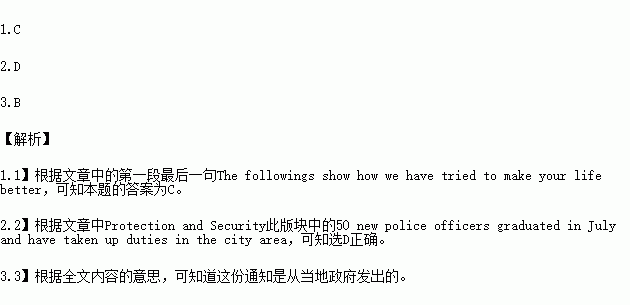题目内容
Answering the Community Needs of Our City
The Silver City Council recognizes that citizens have certain needs.To better meet your needs,we have made several changes to community facilities in 2014.The followings show how we have tried to make your life better.
Transport
☆Three stations for the suburbs have been added to the western train service.
☆20 new buses for the southern line were purchased in January.
☆50 per cent of city bus stops have been upgradeD.
Communication
☆Broadband cable is now av ailable to all parts of the city.
☆All of the new Government buildings are smart wired for better computer service!
Medical Facilities
☆The new state of the art Nightingale Hospital was opened in June.
☆To overcome a shortage of trained medical staff at Dover Hospital,10 doctors have been employed from overseas.
☆Some facilities at Station Street Hospital have been upgradeD.
Education
☆Textbooks will be free to all primary students in 2014!
☆Rental for private schools has been reduceD.
Protection and Security
☆Extra police now patrol(巡逻)the tourist areas.
☆50 new police officers graduated in July and have taken up duties in the city areA.
Entertainment / Recreation
☆The new Central Community Building opened in May.
☆5,000 new fiction books were bought for the Silver City Library.
1.What is the purpose of the changes in Silver City?
A. To satisfy all the needs of the citizens.
B. To make public service improveD.
C. To better the citizens’life.
D. To meet the needs of the Silver City Council.
2.What can we learn from the passage?
A. Travel books are provided in the new library.
B. More bus lines and stops are bought in Silver City.
C. Free medical treatment is available at Station Street Hospital.
D. There are more police officers on duty now.
3.The public notice is from _______.
A. the community
B. the local government
C. the Silver City Library
D. a travel agency
 能力评价系列答案
能力评价系列答案 唐印文化课时测评系列答案
唐印文化课时测评系列答案
